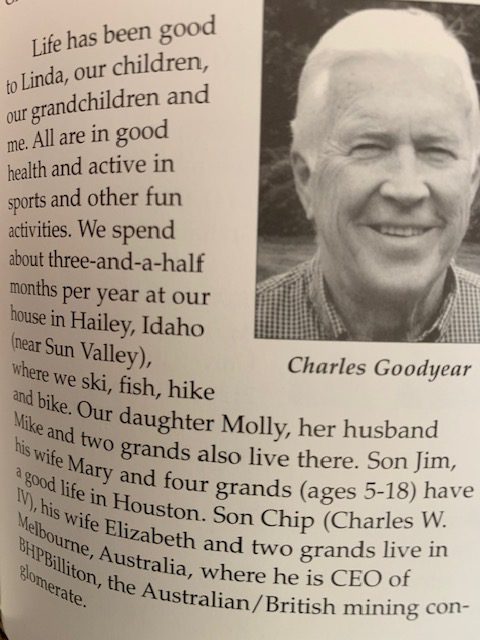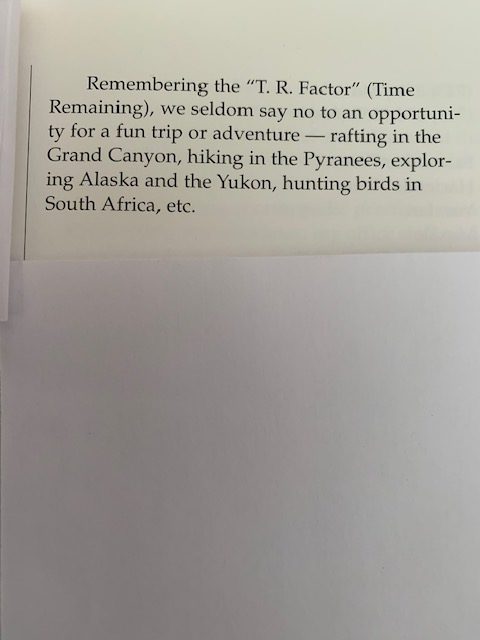Billy : Much about Humanity and Powers Control, what about Meaning of Life for us personally ? Can we learn more from James’ “CHASING DAVIS” ?
James: According to Chasing Davis ( a book James published some years ago ) Life has no intrinsic or universal meaning. However, Life does allow us the opportunity to create an individual meaning for our respective lives.
Stephen: Very much my conclusion as well, James. We can create individually because of what? Our individual ability to set a goal using our freedom plus reasoning ability to make a choice among alternatives. And then to execute our individual choice of future actions.
I believe that a purpose can be created out of nothingness. It may be an evolution and not necessarily be objective universally. It’s sufficient to be subjective.
James: Our answers seem to work for us. That is enough.
Billy: Individual Goals, Ideas, and Choices are fine for the Individual by him or herself.
What indeed happens when they ultimately meet others bilaterally or collectively ?
.
Stephen: Your persistent question to go beyond an individual’s subjective values, happiness and “purposes or no purpose” illustrates the unsatisfying hypothesis to many people that life and existence have no purpose.
Perhaps it is an egoistic urge arising from our brains to enable oneself to be elevated to a higher rank than others so as to feel good about ourselves. In other words, it may be a subjective illusion. But on the other hand, it is just as possible to explain it as an attractive force from somewhere in the Universe which motivates our brain (or our subjective self) towards a purpose or a level of “evolution” to create a more complex and beautiful Universe.
This is attractive to me because it explains the Universe as a growing and evolving existence which can be also objectively measured scientifically by humans and aliens alike and compared over time to go through cycles and stages of progress and reversals, complexification and destruction, spiraling into the future.
If today’s “establishments in science” also evolves and grow, humanity and the Universe will grow also.
James: Purpose is defined by the individual. Metaphor: The universe is an immense, craggy, rocky mountain. On its surface there are random, small pockets of life. This life serves no purpose for the mountain. Thus, these scattered life forms must create their own purpose if they so choose.
When individuals interact: Metaphor: individual subatomic particles are quantum…each spinning and not spinning at the same time…hard to understand and analyze. Yet when they form atoms and atoms form a brick…easy to see and investigate. Yet what about water? Not so stable, constantly changing, interacting, evaporating, freezing, hard to pin down. But the forces that keep both the brick and the water together are the same…gravity and chemical bonds. Think of these two universal forces metaphorically as what we conceptualize as hard science and elusive spirituality. When gravity and chemical bonds are functioning properly, the atoms stick together to form a cohesive whole. When outside forces intervene, they splinter back into subatomic particles.
Stephen: Though “Purpose” is fundamentally exhibited on an individual human basis (like an individual atom of a unique kind), individual humans with similar “Purpose” attract one another to form collective molecules using a different or perhaps weaker chemical bond. Is that why we use the term “chemistry” to describe friendship?
Billy: I like to quote you guys in a brief article in <https://friendshipology.net>, if I may. If Friendship depends on Chemistry, let’s study more about what Chemistry..
Cheers !
____________________________________________________



